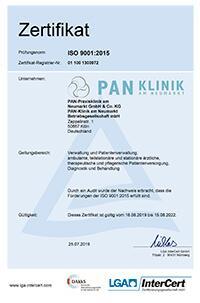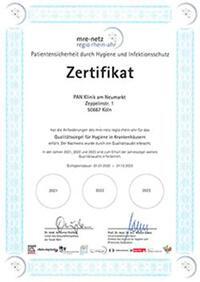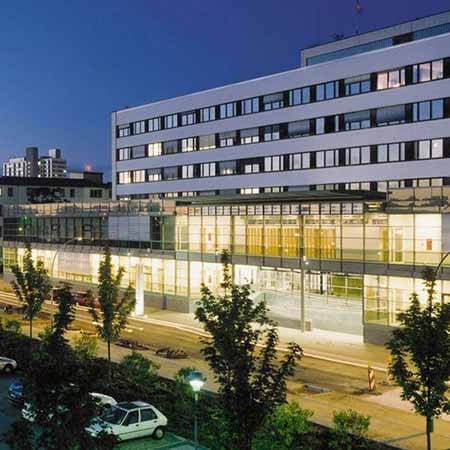Hospitals for Medical Check-Up in Germany
Each hospital in this list meets Booking Health’s strict international standards: at least 250 surgeries per year, ISO‑certified quality management, and documented survival outcomes. Our medical board then ranks the clinics by clinical expertise, technology, and patient‑satisfaction scores.

The PAN Clinic Cologne is a multidisciplinary medical facility that combines advanced medicine, excellent quality of patient care and a high level of comfort. Founded in 1999, the clinic is located in the very heart of Cologne. During this time, the medical complex has gained long clinical experience, but at the same time it has



Basic Check-Up (examination)
Price from:
0.00
Go to the program Gastroenterology Check-Up (examination)
Price from:
5285.47
Go to the program Cardio Check-Up (heart examination)
Price from:
0.00
Go to the program Cancer Prevention (Men)
Price from:
11578.62
Go to the program Cancer Prevention (Women)
Price from:
13054.68
Go to the program Check-up Plus (full medical check up)
Price from:
15560.28
Go to the program Dermatological Diagnosis
Price from:
0.00
Go to the program Gynecological Check-Up (examination)
Price from:
0.00
Go to the program Neurological Diagnosis
Price from:
0.00
Go to the program Ophthalmologic Diagnosis
Price from:
1959
Go to the program Otolaryngological Diagnosis
Price from:
0.00
Go to the program Urological Check-Up (examination)
Price from:
0.00
Go to the program 
The University Hospital Rechts der Isar Munich was founded in 1834. It combines long traditions with the very latest advances in modern medicine. The medical facility includes 33 specialized departments and 20 interdisciplinary centers, where patients can receive top-class medical care in all medical fields. The hospital annuall



Basic Check-Up (examination)
Price from:
0.00
Go to the program Gastroenterology Check-Up (examination)
Price from:
5598.67
Go to the program Cardio Check-Up (heart examination)
Price from:
0.00
Go to the program Dermatological Diagnosis
Price from:
0.00
Go to the program Gynecological Check-Up (examination)
Price from:
0.00
Go to the program Neurological Diagnosis
Price from:
0.00
Go to the program Ophthalmologic Diagnosis
Price from:
Go to the program
2126
1976 Orthopedic Diagnosis
Price from:
0.00
Go to the program Otolaryngological Diagnosis
Price from:
0.00
Go to the program Pulmonary Diagnosis
Price from:
6909.33
Go to the program Urological Check-Up (examination)
Price from:
0.00
Go to the program Vascular diagnosis
Price from:
0.00
Go to the program 
The Bundeswehr Hospital Berlin enjoys a reputation as one of the leading medical facilities in Germany, where patients receive top-class medical care corresponding to the high standards of European university medicine. The medical center is an academic hospital of the Charite University Hospital Berlin – the largest and th



Gastroenterology Check-Up (examination)
Price from:
4790.61
Go to the program Cardio Check-Up (heart examination)
Price from:
0.00
Go to the program Dermatological Diagnosis
Price from:
0.00
Go to the program Neurological Diagnosis
Price from:
0.00
Go to the program Ophthalmologic Diagnosis
Price from:
1776
Go to the program Orthopedic Diagnosis
Price from:
0.00
Go to the program Otolaryngological Diagnosis
Price from:
0.00
Go to the program Pulmonary Diagnosis
Price from:
6019.84
Go to the program Urological Check-Up (examination)
Price from:
0.00
Go to the program 

